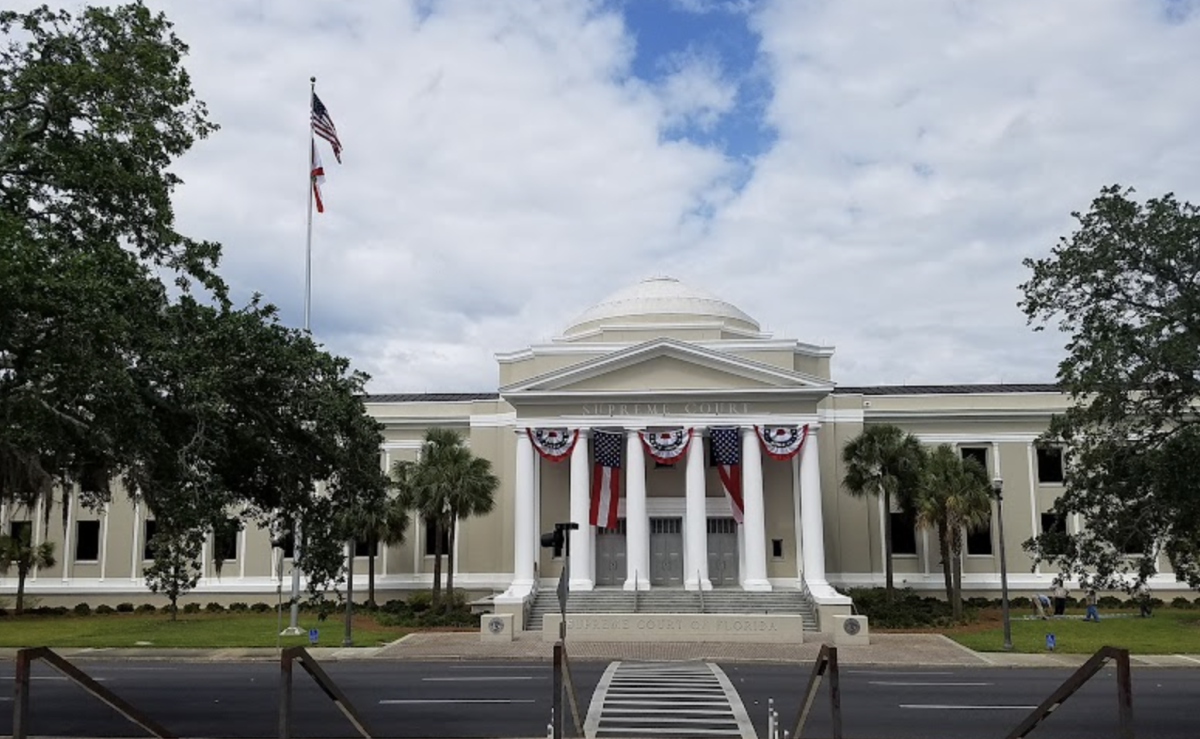On April 1, Florida established a ban on abortions after six weeks of pregnancy. Florida’s Supreme Court ruled their state constitution’s privacy protections do not encompass abortion rights, overturning more than 50 decades of legal precedent. The six-week ban will take effect on May 1.
The 1973 Roe v. Wade ruling protected abortion under the right to liberty, ensuring that the patient’s choice to get an abortion was kept between that patient and their doctor. In 2022, Roe v. Wade was overturned when the case of Dobbs v. Jackson was brought to the Supreme Court – a case concerning a 15-week abortion ban in Mississippi.
Dobbs v. Jackson marked the end of the national right to abortion, now leaving the right to abortion up to the states.
The six-week ban in Florida, however, does not fully reflect the opinions of Floridians. The New York Times reported that “most Floridians believe abortions should be legal in most cases.”
Juniors Kaila Saad and Isabel Limão, heads of the Current Events Club, said that “[t]he Florida Supreme Court directly contradicted public opinion by claiming that the Florida Constitution did not protect abortions.”
After Roe v. Wade was overturned, various states implemented trigger laws regarding abortion and were quick to restrict abortion as soon as six weeks after abortion. Florida’s Supreme Court is one of many that rely on the opinions of the state’s citizens.
In the interest of bridging the gap between the court and the people, a question about a possible abortion ban will be put on Florida’s November ballot, allowing Florida residents to voice their opinions.
Saad and Limão believe that Florida should have “let the abortion laws stand until the public could vote on the law in November, [allowing their] abortion law to be driven by a democratic process.”
Florida’s choice to leave the state’s abortion policies up to voters allowed advocates to “continue their national campaign to preserve access to the procedure” by directly “weigh[ing] in on the issue,” according to The New York Times.
According to The New York Times, Florida’s November ballot plans to address the right to abortion ‘before viability,’ usually around 24 weeks.
Some states surrounding Florida have also established barriers regarding abortion access. Both Georgia and Alabama banned abortion soon after the 2022 overturning of Roe v. Wade. This made Florida an island among strict abortion bans, as it had less restrictive policies on abortion, giving those seeking abortion a little breathing room.
Now, those seeking an abortion must travel even farther north, to Virginia, D.C. or Maryland. However, many who seek an abortion lack the resources to travel long distances for the procedure. The ban is not only inconvenient but also “endangers people who need life-saving abortions,” Saad and Limão remarked.
States with six-week abortion bans, however, may effectively be full abortion bans. “Most women don’t even realize they’re pregnant until four or five weeks,” said Saad and Limão.
Supporters of Florida’s six-week ban speculate that the state’s laws will become stricter, eventually resulting in a complete abortion ban. This will prevent a potentially life-saving procedure, which could result in the death of both the fetus and the pregnant mother.
On March 26, the Supreme Court explored a potential ban on abortion pills, even in states where abortion is protected, according to CNN.
Abortion pills Mifepristone and Misoprostol are approved as safe and effective by the FDA, Saad and Limão said. The club heads believe that banning abortion pills violates the right of bodily autonomy, and “[b]anning abortion pills would also not reduce the number of abortions, but instead cause more women to turn to unsafe means of abortion.”
On the other end of the spectrum, Arizona relied solely on its politicians to reinstate a law from 1864 that severely restricts abortion access. The law bans abortion immediately after conception and only allows the procedure if the pregnant woman’s life is threatened. There would be no exception for rape or incest.
According to The New York Times, this 160-year-old law could have far-reaching consequences, endangering womens’ lives. Arizona’s fully Republican Supreme Court sensed unease regarding the case, so the ruling was put on hold and sent to a lower court.
The changing policies and restrictions in Florida and elsewhere in the U.S. pose challenges for many women, as they agonize over the tentative future of abortion rights in this country.











































